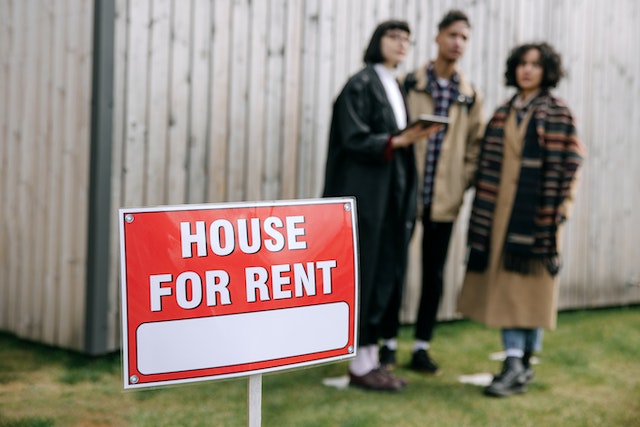Stewart Property Management – Greater Ottawa and Surrounding Areas
Key Takeaways
- Effective Rental Pricing Requires More Than Market Comparisons – Successful pricing must account for neighbourhood dynamics, property type, features, and even seasonal demand shifts. Understanding how these factors influence rent allows landlords to set a competitive yet realistic rate that attracts quality tenants.
- Legal Compliance and Cost Considerations Are Essential – Landlords in Ottawa must comply with Ontario’s rent control laws and consider all operating expenses when setting rental rates. Staying legally informed and financially strategic helps ensure long-term rental success.
- Ongoing Monitoring and Market Responsiveness Are Key – Landlords should closely monitor listing performance and be ready to adjust pricing based on market feedback. Flexibility and market awareness are crucial to keeping properties rented and profitable.
_________________________________________________
Many landlords believe setting a rental price is as simple as comparing similar properties in the area, but this approach often overlooks key factors that influence rental value. Stewart Property Management has put together this article to help landlords in Ottawa understand how to accurately and competitively price their rental properties. With the right strategy, you can minimize vacancies, attract quality tenants, and protect your investment long-term!
Understand the Local Market
Ottawa is a diverse city with a wide range of neighbourhoods, each with its own rental trends. Factors like proximity to public transit, schools, shopping centres, and major employers can significantly affect rental demand and pricing.

To set a realistic rental price, start by analyzing what similar properties are listed for in your immediate area. Focus on those that are close in terms of size, age, features, and location. Keep in mind that advertised prices are not always what properties rent for, so if you know local landlords or have access to historical data, use that information for better accuracy.
Factor in Property Type and Features
Not all properties are valued equally. Detached homes, semi-detached homes, townhouses, and condominiums each appeal to different tenant types and can vary widely in rent. The number of bedrooms and bathrooms, the presence of a finished basement, yard space, parking availability, and included utilities all impact the rental price as well.
Modern finishes, updated appliances, and energy-efficient features can also justify a higher rent, as tenants are often willing to pay more for comfort and convenience. On the other hand, if your property needs repairs or lacks modern amenities, you may need to adjust your price accordingly.
Consider the Season
The time of year you list your property can affect the rent you can charge. In Ottawa, the rental market tends to be more active in the spring and summer, when tenants are more likely to move. During these months, landlords can usually command higher prices due to increased demand. In contrast, rental activity often slows down in the winter, and pricing may need to be slightly lower to attract interest.

If you have flexibility, timing your listing for peak rental season can help you secure tenants faster and at better rates. However, if your property becomes vacant during a slower period, consider offering incentives or adjusting the rent slightly to reduce the time it remains empty.
Account for Operating Costs
The rent you charge needs to account for more than your mortgage payments. Factor in other costs such as property taxes, insurance, maintenance and repairs, and potential vacancy periods. If utilities are included in the rent, estimate monthly costs and build that into your pricing.
Always ensure that your rent covers your expenses and provides a reasonable profit margin. That said, avoid overpricing in an attempt to cover every cost. If your price is significantly above market value, you risk longer vacancies, which can ultimately cost you more.
Know the Legal Limits
As a landlord, you must comply with the Residential Tenancies Act, which limits the annual rent increase you can apply to existing tenants. While you can set the rent freely when signing a lease agreement with a new tenant, it’s important to stay informed about legal guidelines and avoid unlawful pricing practices. Also, be aware of rules related to rent deposits and what you can charge tenants for services.

Evaluate the Demand and Tenant Profile
Think about the type of tenant your property is likely to attract. If demand is high and there is little inventory in your area, you may be able to price higher. However, in a slower market or if your property has limitations, you may need to be more competitive. Keeping your ideal tenant in mind can help guide your pricing and marketing decisions.
Monitor and Adjust as Needed
Even with careful research, the rental market can change quickly. If you are not receiving inquiries or showing requests within the first two weeks of listing, your rental price may be too high. Be prepared to make small adjustments based on market response. Conversely, if you receive many applications right away, you may have room to increase the rent slightly.
Tracking market performance and tenant feedback will help you stay flexible and informed. A well-priced rental usually attracts interest within a few days and is rented out within a few weeks.
Bottom Line
Setting the right rental price for your Ottawa property involves more than just looking at similar listings. It requires an understanding of your local market, consideration of your property’s features, knowledge of Ontario rental laws, and ongoing evaluation of tenant demand and seasonality. A well-researched and realistic rental price will help you attract quality tenants, minimize vacancy time, and maximize your rental income.
We at Stewart Property Management have the experience to guide landlords through the pricing process. From market analysis to tenant screening and property maintenance, we provide full management support to help you succeed as a landlord in Ottawa. If you are unsure about how to price your rental property or want professional help managing it, contact Stewart Property Management today for a consultation. Let us help you maximize the value of your property.